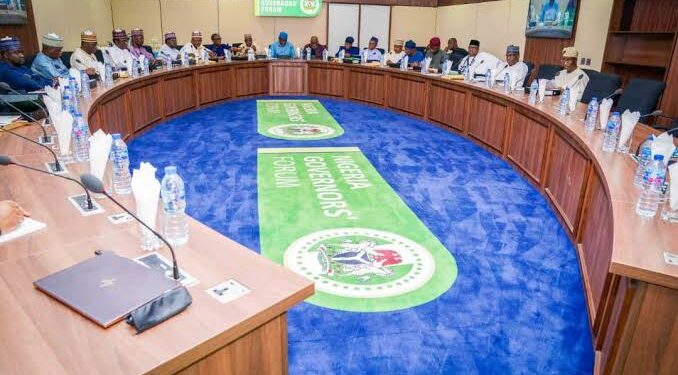The All Progressives Congress faces mounting internal discord as several state governors organize resistance against a controversial proposal to guarantee automatic re-election tickets for National Assembly members in the upcoming 2027 general elections.
The initiative, which has received backing from President Bola Ahmed Tinubu, has triggered a brewing confrontation within the ruling party’s leadership structure. Sources indicate that governors from the South East and South West regions have emerged as the primary architects of opposition to the automatic ticket scheme within their jurisdictions.
Political insiders suggest the contentious issue will likely reach the desk of APC National Chairman Dr. Abdullahi Ganduje following the conclusion of Sallah celebrations in the federal capital. The timing reflects the urgency with which opposing factions view the matter as preparations for the 2027 electoral cycle intensify.
The gubernatorial rebellion has created a complex political dynamic, with some state executives expressing reluctance to directly challenge an arrangement that bears presidential endorsement. However, a significant faction has maintained firm opposition despite potential political risks associated with confronting the party’s highest-ranking leader.
Imo State Governor Senator Hope Uzodimma, who chairs the Progressive Governors Forum, has adopted a diplomatic stance by declaring his intention to support whatever decision the party ultimately reaches. Through his Chief Press Secretary Hon. Oguwike Nwachuku, Uzodimma emphasized his loyalty to party decisions regarding legislative automatic tickets while clarifying that his position does not represent the collective view of other APC governors.
National Chairman Ganduje has publicly defended the concept of retaining performing lawmakers, questioning the wisdom of high legislative turnover every four years. During a recent gathering with North Central party leaders who endorsed President Tinubu’s second-term aspirations, Ganduje argued that frequent changes in legislative composition undermines institutional memory and effectiveness.
“Why should we experience such significant turnover among our legislators after each electoral cycle? Does this pattern foster the development of institutional knowledge?” Ganduje challenged party members, advocating for dialogue between party leadership and National Assembly officials to ensure active legislators receive opportunities for re-election.
The divide among governors has revealed fractures within the Progressive Governors Forum, with unnamed sources indicating that not all South West governors have joined the resistance movement. Two governors from the region have reportedly distanced themselves from the opposition, believing that presidential decisions deserve support regardless of personal preferences.
These governors argue that challenging presidential strategy could undermine party unity and that Tinubu’s position likely reflects careful strategic consideration. Their stance contrasts sharply with colleagues who view the automatic ticket arrangement as potentially detrimental to democratic competition within the party.
The automatic ticket proposal represents part of a broader consolidation strategy designed to strengthen presidential influence over APC operations while minimizing internal conflicts that could generate costly legal challenges during primary elections. Proponents argue that the approach would prevent legislative inexperience and promote continuity within the National Assembly.
Despite the strategic rationale, opposition has emerged beyond gubernatorial circles. In Ondo State, a prominent APC figure and former Niger Delta activist has issued threats to support opposition candidates if automatic tickets are imposed on federal lawmakers from local constituencies. The party leader has reportedly vowed to sponsor alternative candidates against incumbent senators and House members should the controversial policy proceed.
The internal tensions have coincided with broader defections from the ruling party, exemplified by former Environment Minister Mohammed Hassan Abdullahi’s recent resignation from APC membership. Abdullahi, who previously served as Secretary to Nasarawa State Government under ex-Governor Tanko Al-Makura, formally submitted his resignation to party leadership in his Uke Ward within Karu Local Government Area.
His resignation letter, distributed to various party officials, cited personal considerations while expressing gratitude for opportunities to serve within APC ranks. The departure adds to growing concerns about party cohesion as the 2027 electoral season approaches.
The escalating dispute over automatic tickets reflects deeper questions about democratic practices within Nigeria’s ruling party and the balance between presidential authority and grassroots party democracy. As tensions continue building, the resolution of this conflict may significantly influence APC’s internal dynamics and electoral prospects in the coming political cycle.

















